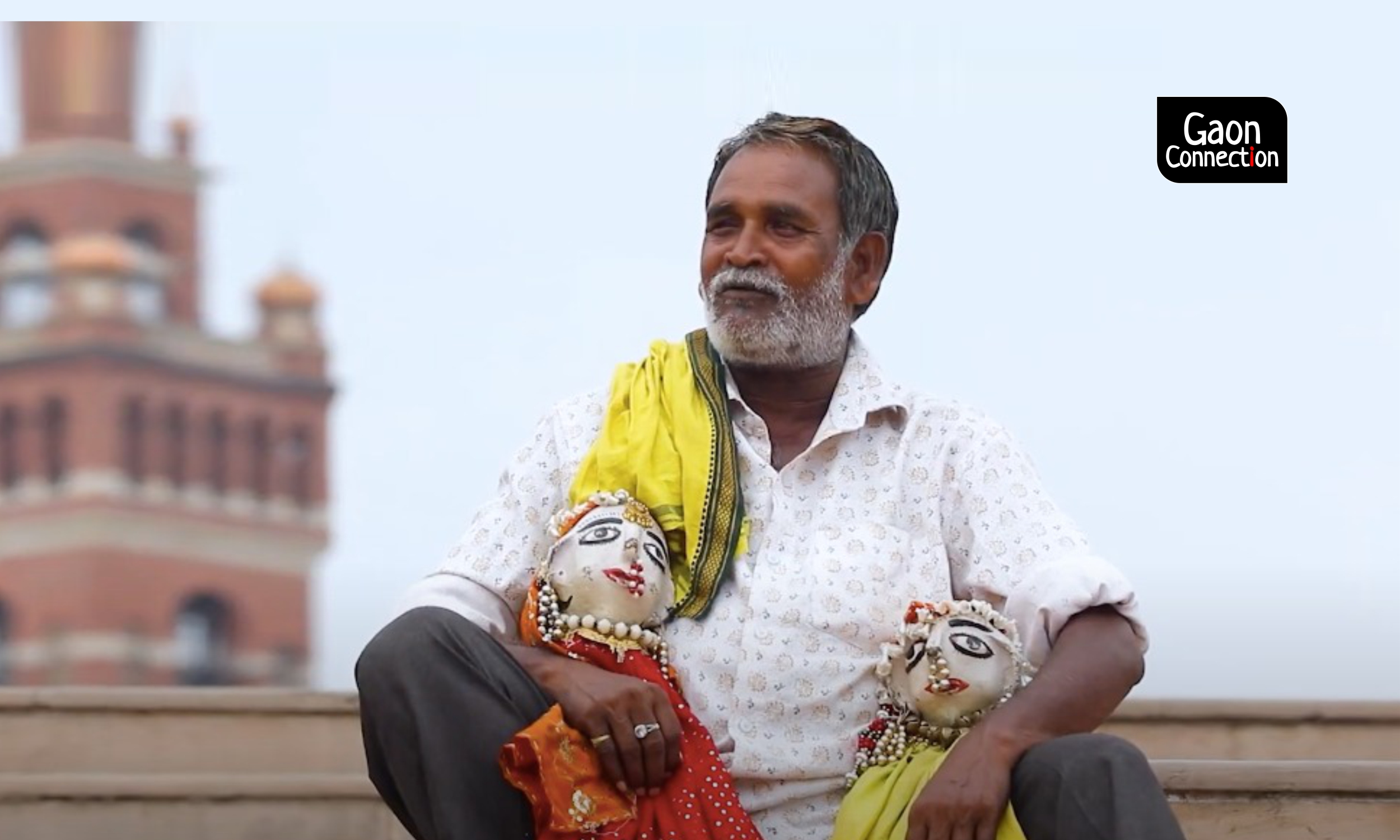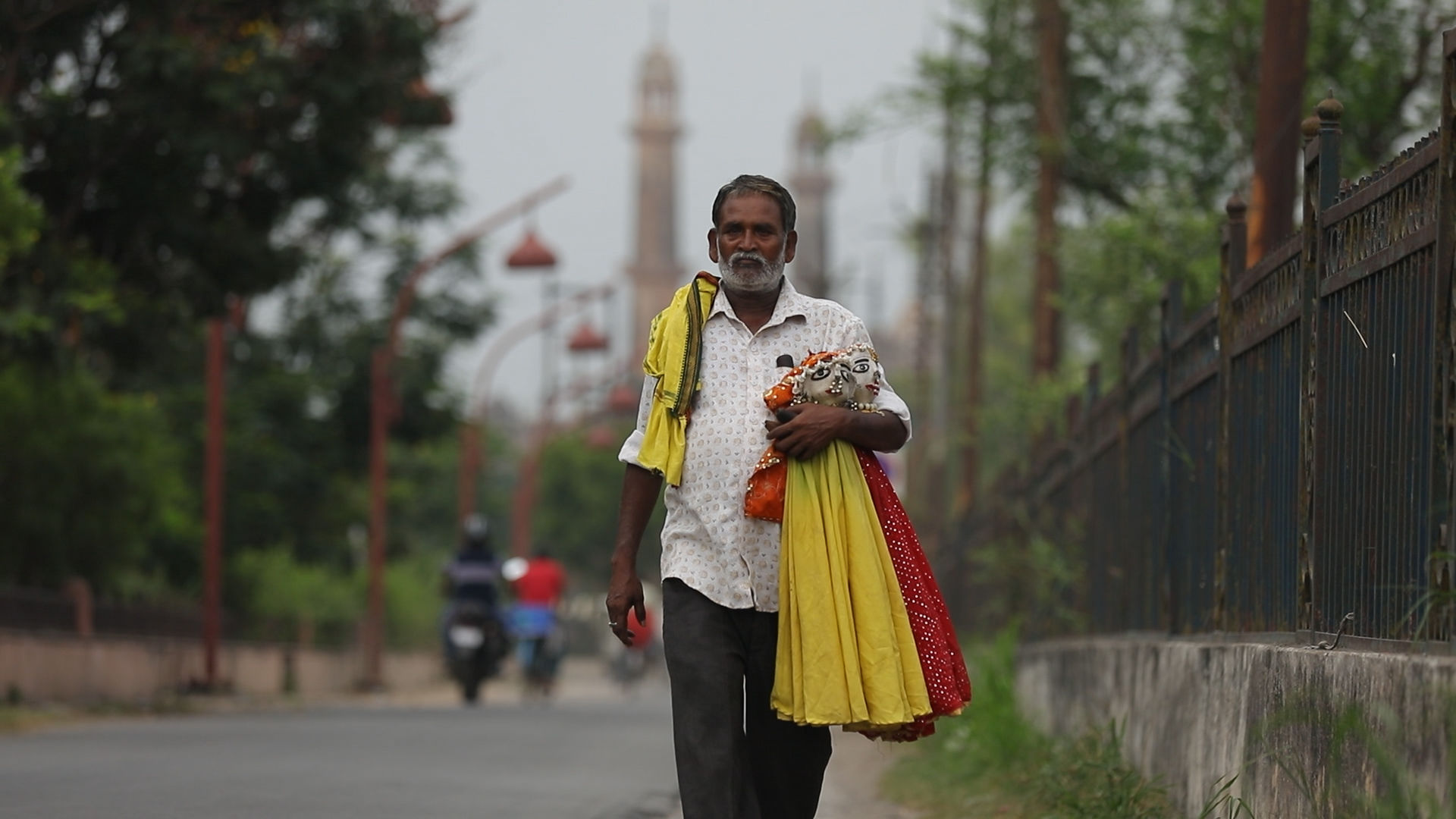The artist behind Gulabo-Sitabo: Story of a puppeteer from Uttar Pradesh’s Lucknow
If people aren’t leaving their houses, a puppeteer wouldn’t have audiences. That’s what happened with Raees Ahmed, a puppeteer who has been telling stories of, and through, Gulabo and Sitabo, his two puppets, when lockdown was imposed in the country.

In a peculiar voice, Raees Ahmed, the hero of this story, introduced his two heroines – Gulabo and Sitabo. “This is Gulabo, and this is Sitabo,” Ahmed said, and both Gulabo and Sitabo clapped their hands in acknowledgment.
The two glove puppets, Gulabo on his right hand and Sitabo on his left, earn Ahmed his living. He walks from one place to another, narrating stories through these two characters, sometimes sisters-in-law, two women married to a man, and sometimes a man’s wife and mistress.
The puppets are usually made of papier-mâché, a substance made of paper pulp mixed with glue and other materials, and is moulded when moist. Faces are drawn on these, they have moveable ‘hands’, and are given colourful, traditional attire, and gaudy ornaments.
Ahmed, a resident of Uttar Pradesh’s Old Lucknow, hails from a family of puppeteers. His family, he informed, has been doing puppetry for over 35 years. In his father’s days, puppeteers were invited to affluent households and were paid well for the ‘Gulabo-Sitabo’ show.

“All I have to do, usually, is announce my arrival. Kids, adults, and the old alike used to assemble to see my show,” Ahmed said. He narrates different tales using both spoken words and songs. “I used to earn some 500-600 rupees a day, and we used to survive on that. But, ever since the lockdown began, I’ve been struggling to earn a rupee,” Ahmed sighed.
This art traces its roots back to the 17th century. The puppeteers used to be invited to palaces to entertain the royals.
“We used to be respected in those times, we were valued,” Ahmed sighed. “People didn’t forget puppetry despite other means of entertainment but, since the advent of television and mobile phones, people started losing interest,” he told Gaon Connection.
“This story is of a man’s wife and mistress. Sitabo is his wife, and Gulabo is his mistress. The stories are of their fights,” Ahmed explained.

Ahmed told Gaon Connection that his family used to work for six months and earn enough to relax during the monsoon season.
However, the lockdown turned everything upside down. Others have started taking up other work, but Ahmed hasn’t, yet. “I still go to known places and perform a show or two, but I hardly make any money. Now, if I don’t do some other work, my kids will starve,” Ahmed said.
The government is not doing much to help, as per Ahmed. He is also not very amused by those who come to cover his work and story, click pictures, shoot videos, film his plays, and leave because that is not helping him earn money either.
“They share the footage on mobile, or they put it on television, our state remains the same,” Ahmed told Gaon Connection.
Savitri Devi, Ahmed’s neighbour, runs a small shop. “If people don’t come out of their houses, how will Ahmed show his play? How will he earn?” she asked.
“In my childhood, I have seen puppetry a lot. It is really nice. We used to like it a lot. But we don’t see it a lot these days. And kids today are engrossed in their phones,” said an elderly gentleman Gaon Connection spoke to. Ahmed, however, is not ready to let Gulabo and Sitabo go. “I used to feed my kids because of them. I’ve earned a living because of them then, I’m doing it now. They are like my kids to me,” he said.

